Cracking the Code Volume 1: Phil Clevenger
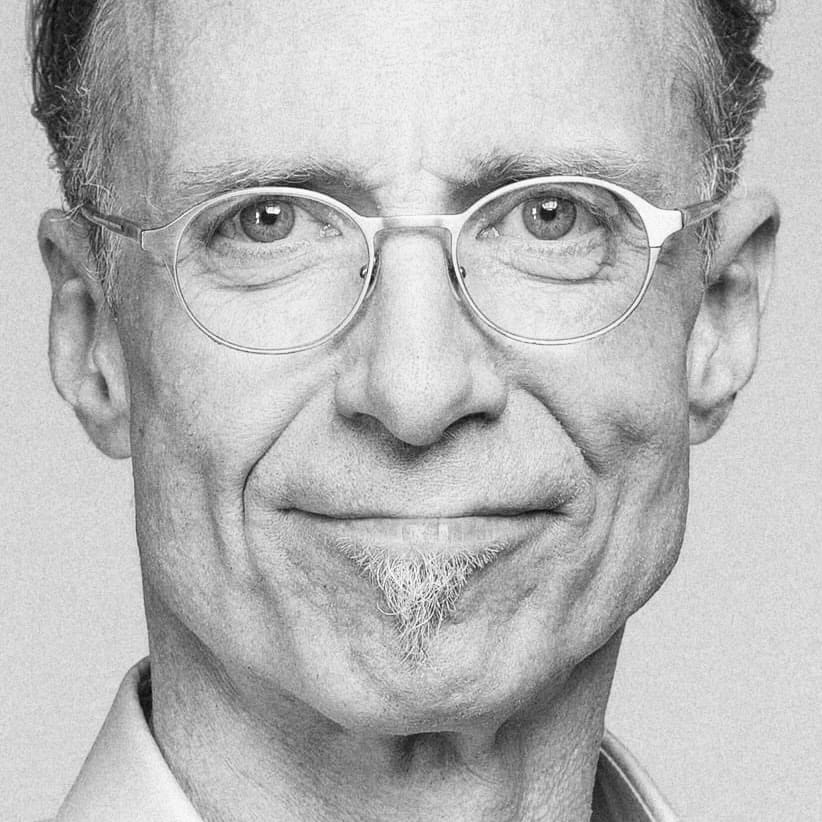
"I would've done anything to look good...except for dieting and exercise."
This is a new series I'm debuting about people that have overcome significant hurdles in order to achieve health and fitness. I'm calling it "Cracking the Code," because I firmly believe that fitness is a "code" which can be cracked and solved. I couldn't be happier — or prouder — to inaugurate the series with my long-time friend and client Phil Clevenger.
Phil has gone on a tremendous journey to get to where he is today. He has a unique story, and it's been a pleasure both witnessing the journey and writing about it.
JB: Welcome to the inaugural edition of "Cracking the Code," Phil. I can’t think of anyone I’d like to have highlighted in the inaugural profile more than yourself.
PC: Well, thank you.
JB: You know, among my friends, clients, and family the story of how we met is legendary.
PC: Yeah. I remember it well.
JB: You came into the gym with our mutual friend Geoff, and I wanted to get a sense of your fitness background. I asked you about your health history, and you responded “I would do anything to look good … except for diet and exercise.”
PC: (laughing) All true.
JB: As I recall, that first session with Geoff lasted less than twenty minutes, and then you called it in. You said you’d be back in a month or so after you lost some more weight. I said “Great. OK. I appreciate the effort.” I came home and my partner asked me how it went with the potential new client. I told her that he’s got a great sense of humor and that he said he’d be back in a month or so.
She asked me what I thought and I told her that I doubted you’d be back. People say that a lot, but actually committing to getting in shape is very, very difficult — especially if you don’t have any fitness history to draw upon.
But, you were back. And you made that commitment to fitness. Not only that, you got to the point where you were doing more pull-ups and holding a plank for longer than anyone I trained. Including myself. So a really big success story.
And, here we are. Ten years later, and you’re still committed to being in shape. So, I’m hoping people coming from a similar background can benefit by reading about your journey. Let’s go back in time to that first session in the Winter of 2014.
Phil: Well, the session was really hard, and I couldn't finish it, but what you could not have known at the time is that I was already working towards a goal. Here is some backstory for your readers.
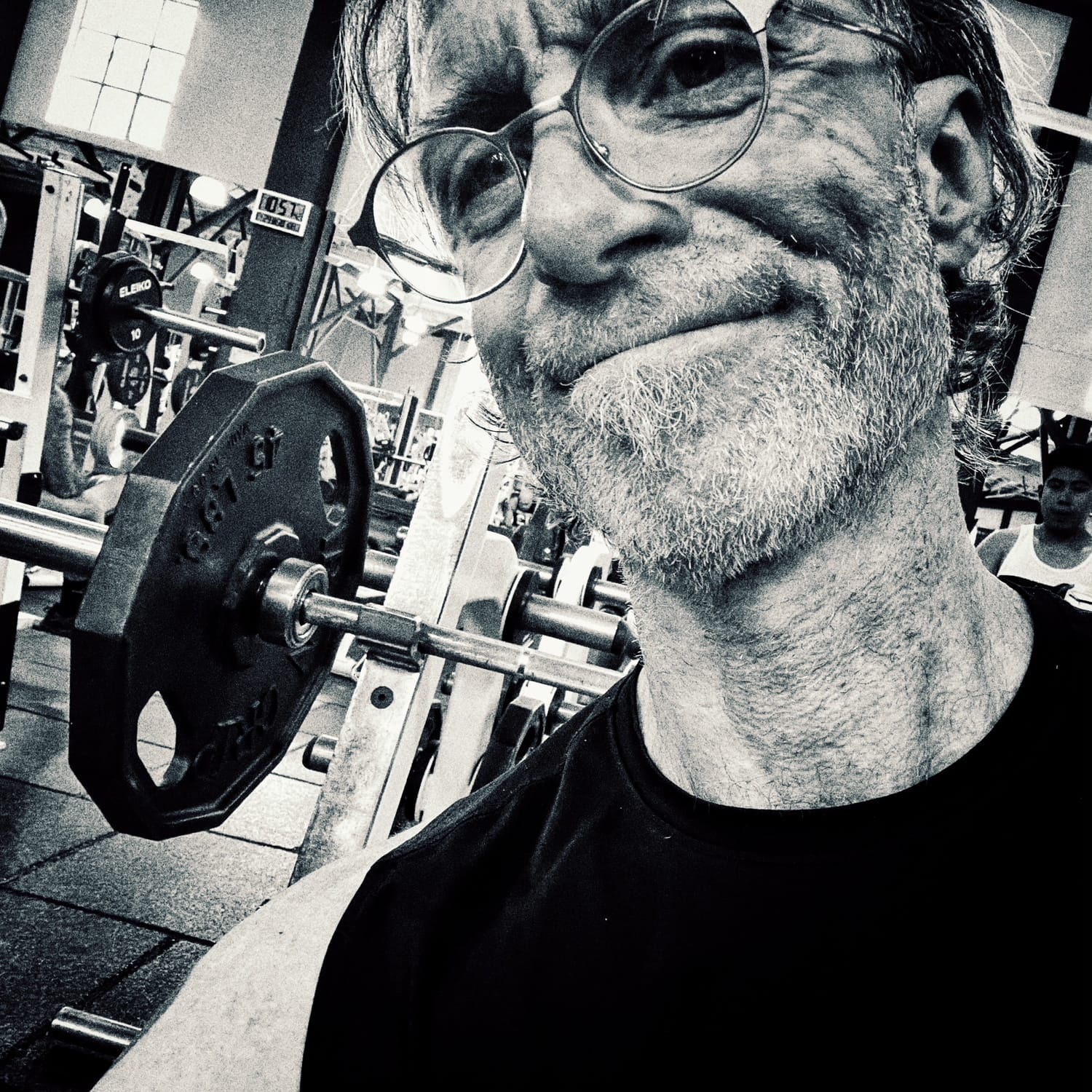
"I was 50 years old then, and any movement in my day was between my couch and the car and between my car and the computer. And that was literally it."
The other thing to understand is that I’m tall (almost 6’3) and historically thin. So, for many years, I didn’t think being out of shape was a problem. Because I could fool myself when I looked in the mirror.
But for years I was gaining weight incrementally, and not paying much attention to it. I was kind of like the proverbial boiling frog. Eventually, the symptoms became too apparent to ignore. I had pain in my knees, elbows and shoulders. Joint inflammation. Easily winded. For many years, I weighed around 170, but by this time I had gotten up to 230.
JB: And that wasn't muscle.
Phil: (laughing) Definitely not. I remember a work trip I took to China around that time. My colleagues and I visited the Great Wall, and they took the stairs. I made up some excuse about joining them in a bit and took the tram up. I remember thinking I was going to have a panic attack because they didn’t have emergency exits on the Wall in case I got winded or needed first aid.
JB: I remember that story.
PC: Yeah, so even taking two flights of stairs was an ordeal for me at that time.
But, you know, I got very lucky in that I got good advice at the right time from the right people, in the right order. My work had an excellent health plan – not everyone has this good fortune – and just before you and I met, I had become so concerned that I went to a physician and told him about all these symptoms. I was truly scared, and asked “Is this all bad? Is this my new normal? Is this where the arc of my life bends irrevocably downward?”
All the tests came back the same day. The X-Rays, the scans, the labs, the urinalysis. Everything was negative. The physician came back and said “Look …there’s nothing wrong with you except you’re carrying around four or five bowling balls with you at all times.” (Chuckles)
So, they educated me about how you deal with weight, sugar, and calories. And they referred me to a nutritionist who told me that “This is very doable.” I didn’t have to deprive myself. I just needed to monitor how much fuel I was burning and how much fuel I was taking in. The nutritionist also told me that my path was easier as a middle-aged man, because it’s apparently harder for women to lose weight at that age.
I took all of that very seriously, and all that was just before the time of our first workout. So, I had all of that going on when I told you I’d be back. I had all this momentum which you wouldn’t have known about.
Also, Geoff and a number of my other colleagues were already working out with you. So I knew I didn't have to do this alone. I recognized that this was a friendly, safe environment. I could tell you would meet me where I was at. It would have been stupid not do it.
JB: You know, we’ve been friends for over a decade now, and some of your stories from when we first met are still firmly lodged in my memory.
Many of the stories that stuck with me concern the numerous ways you used to hide being out of shape. I guess given your height and appreciation for fashion, it was something you thought you could hide. But that also could have delayed you reconciling the fact you were out of shape. Can you talk about that a bit?
PC: Well, I’m almost six three, and when I would tell people that I needed to lose weight, they would scoff, because it looked pretty evenly distributed across my frame. But the reality was I could feel it. I couldn’t climb a flight of stairs without getting winded or doubling over. It was comparable to smoking two packs of cigarettes a day - and although I used to smoke, I hadn’t smoked in ten years.
So, I don’t know if I was necessarily hiding it. Maybe I was. But I think it was more that the reality of the situation was hidden from me.
JB: You come from a music background. I remember you telling me that you were putting on a show somewhere in the desert and you and a bunch of friends were lugging all this equipment onto the stage. You said that you became so winded that you had to hide behind a tree to catch your breath so that no one would see you.
PC: Yeah, I was simply hauling my equipment from car to stage. That was a frightening moment. It was really embarrassing. That was a wake-up call, for sure. That was also right around the time you and I met.
JB: So, at this point, there's little hints adding up that something was really amiss with your health.
PC: Even at work in my office, I couldn’t navigate the stairs without having an embarrassing rest and recuperation period. I couldn't walk my dogs at the local park without difficulty.
JB: A quick follow-up on that. Your son Sam is an avid rock climber, which is obviously an arduous sport. He's very passionate about it. So, I'm wondering...
PC: (interjecting and chuckling) He didn't get those genes from me.
JB: Well, that's what I'm curious about. Did you ever feel the urge to do active things with your son? Or did you just associate sports and activity as the province of "jocks?"
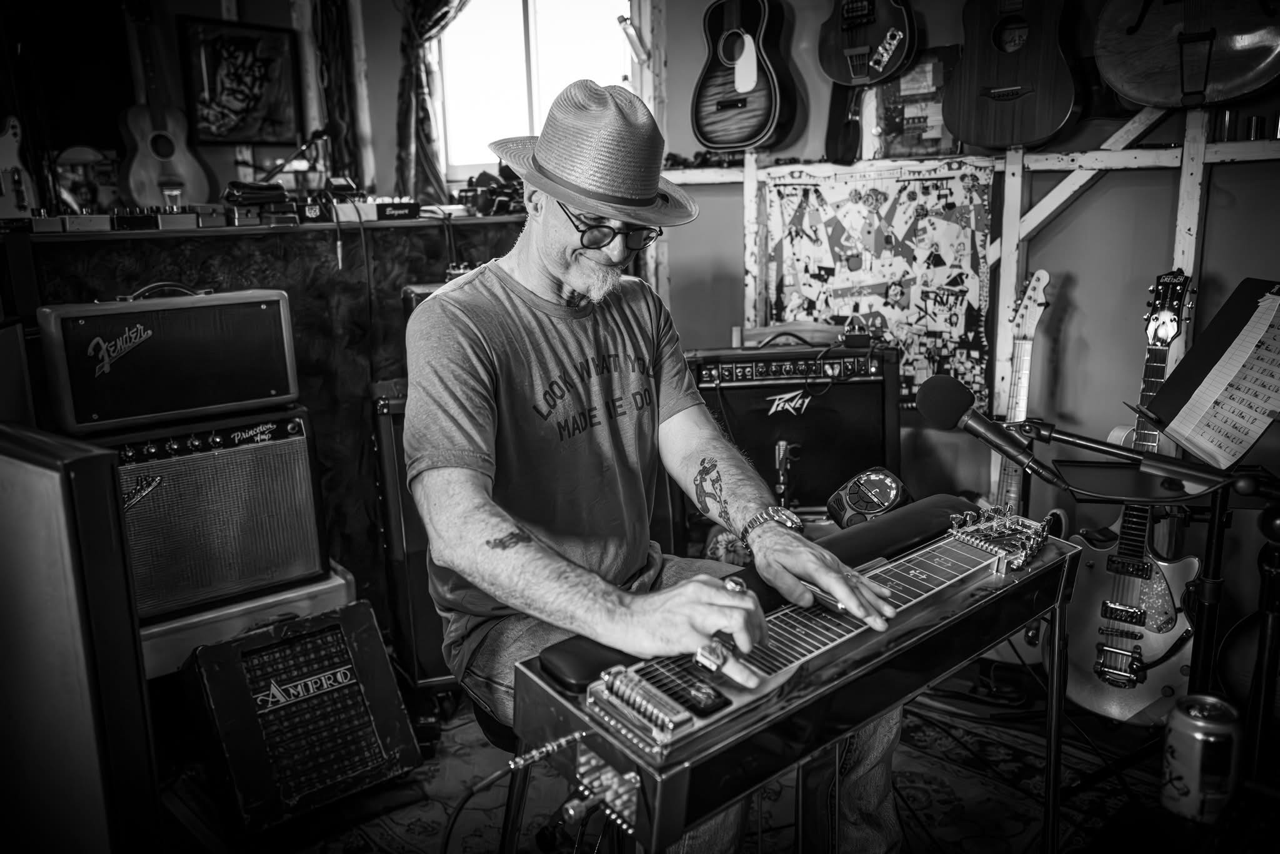
"I came up playing music, cutting classes, and smoking dope in high school, and being a jock was just not part of my history or self-image. I never considered myself athletic and I wasn't interested in competition. None of that stuff appealed to me."
JB: And that mind set carried through to your adult life.
PC: Yeah. Sam actually got a lot of his outdoor experience through the Boy Scouts in Santa Barbara, which was such an outstanding program. Lots of hiking and camping. It was a really positive experience for him. He still hikes and camps to this day.
JB: Did you join him for any of those activities?
PC: The Scouts were organizing a cycling trip from San Francisco to Los Angeles on one occasion, and I thought it would be really cool to cycle down the coast with my son. A lot of other dads were doing it. I thought about it, but I didn't want to be the "dad that had the heart attack."
There was another time that Sam was in high school, and he was training after school. Running up and down the bleachers. So, I thought I'd join him. It took about two minutes to realize how traumatic that was going to be.
JB: So that was brief attempt at exercise.
PC: Yeah. Very brief. (laughing and pauses) A lot of it was just thinking "I'm getting older and less capable," and just accepting things. Keep in mind, when I was parenting Sam, I was smoking two packs of cigarettes a day, which certainly didn't help. (pauses again.)
You know, I wish I knew then what I know now. Obviously, that's a cliche, but it's true. A lot of people don't realize how much agency they have over their health and fitness, and I didn't either.
JB: That's some real great background information. I think it's helpful in framing the narrative. Let's jump forward in time to your nutritional journey. Was that a difficult process?
PC: I didn't really think of it as difficult, per se. More like disciplined. You can buy food that says "organic" or “low-fat" or whatever on the label, but unless you really understand what's going on with your engine — how much fuel you're taking in, and how much fuel you're expending — it really doesn't matter. You're not going to lose the weight.
The nutritionist gave me the gift of the right tools and how to use them. The instructions were pretty simple, but the execution was a lot more detailed. I had to look at all the food I was eating in a much different way. How many calories is in that chicken fillet? Or that cinnamon roll? Or that Frappuccino? Well, eventually you realize that a milk shake will likely have over a thousand calories, while a four ounce filet mignon has maybe a couple hundred. So, what's a better deal for your body?
So, instead of an unpleasant task, this became an exciting project. It was data driven. I approached it with a lot of relish because I wanted to get a good result. I didn't want to be sick anymore.
This is the place where most people fall down. When I lost my first 50 pounds, people used to ask me how I did it, and how they could do it too. I told them to start by keeping a food journal. That's the first step. Simple. But nobody wanted to do that. Out of the roughly two dozen people that asked me about the process, maybe two told me that had started keeping track of their intake with a food journal.
JB: Let's talk about the "calories in/calories out equation." At this point, you were monitoring the calories you were taking in, but you weren't expending any.
PC: Well, I was reading up on the science. I think curiosity is a key component of success here, by the way. Anyway, I became aware of the notion of a resting metabolic rate, which is the calories you burn just by sitting in a chair. And from there, you make some educated assumptions about your daily burn through everyday activity and the gym — which is a lot less than most people think it is – and you can then start to calculate whether you are running a caloric surplus or deficit. And then decide how to invest your food intake within that. So, I was really trying to grapple with the science of nutrition and movement at this point.
JB: You know, one thing I want to clarify is a matter of semantics. We're talking about "weight loss," but what we're actually talking about is "fat loss." I've had very few people approach me and say they're interested in losing some muscle.
PC: Right. You talk about that frequently. When I started with the nutritionist’s advice, I was focused on simply proving to myself I could lose pounds. Once I accomplished that, it became clear that — especially at my age — I needed to protect the muscle and lose the fat. And so I began to look into the subject of “body recomposition,” and found strategies for losing fat and preserving and gaining muscle. One mantra emerged consistently; “strength develops in the gym, fat is lost in the kitchen.”
JB: One of the main reasons I wanted to interview you is that you’re such an anomaly in the fitness world. People who don’t come from a background of moving for pleasure (such as sports) rarely stick with an exercise regimen. Mainly because it’s not that enjoyable. I mean, very few people think “I just can’t wait to do another set of planks, push-ups or burpees.”
But you did stick with it, against all odds. So I’d like to get your mindset after that first session.
PC: Well, first off you’re right. I had tried the gym in the past occasionally, and found it to be repetitive and boring. So, I have a lot of sympathy for that perspective. I remember saying in the past "I gotta go to the gym and get healthy,” and then I go in there and get on a machine without any clue and I just end up saying "what am I doing here?" I had no idea. It made no sense. Eventually, and pretty quickly, you fall off your routine, and that’s what happens to most people.
To answer your question more directly — you made it OK. You were part of the chain of good luck that made things right for me. I got good advice from good doctors. I got good advice from a good nutritionist. And I met the right trainer at the right time.
At this point, you were already training several work colleagues of mine that you had befriended and cultivated over the years, and it was a really fun atmosphere. It was competitive, but it wasn't "jocky." I didn't feel like I was in the room with people who were going to judge me or my journey. I wasn't being pushed into things that I wasn't capable of doing. It just felt right.
So all of that was to your credit. On my side of the equation — and I know I keep coming back to this term — I was doing a project. That's the difference between me now and at the beginning of my journey and the years prior to meeting you. I wasn't bored. Actually, just the opposite. I was totally engaged, because I was on a mission. I had the tools, I had the information, I had goals, and I had a way to measure progress toward those goals.
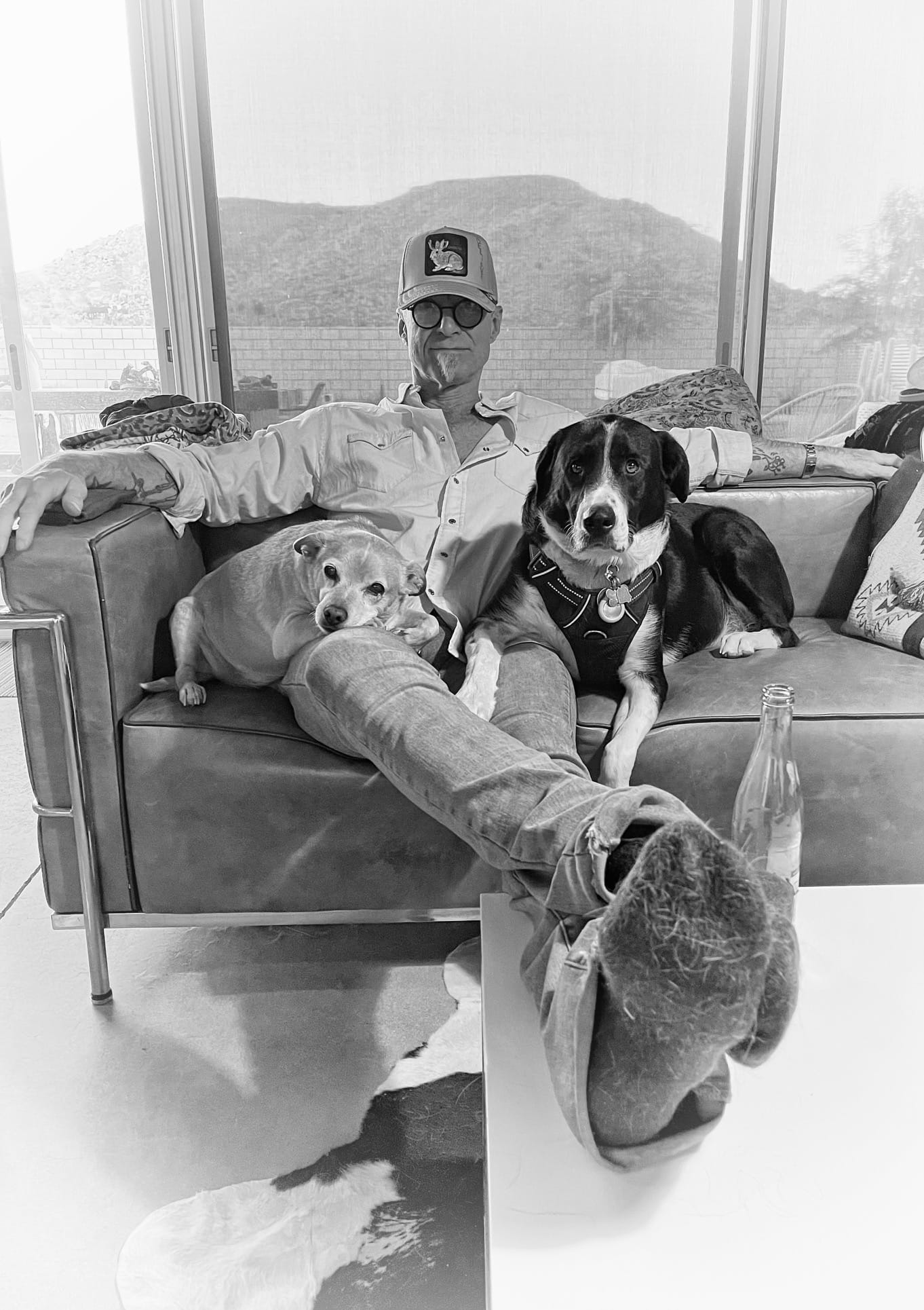
"I also discovered that I really like competing with myself. I never enjoyed competitive sports, but I love knowing that I picked up five more pounds today than I picked up yesterday, or that I did 50 more rotations on a jump rope than I did the week before. The ability to set targets and measure progress toward those targets was a huge ingredient in my success."
JB: Let's talk "planks." When we first met, you couldn't do a single push-up. Fast forward a few years, and you got the moniker "The King Of Planks." You were out-planking everyone. What was that all about?
PC: Well, around the first or second year we started training, a friend of mine was constantly posting pictures of his six-pack on social media. It was a never ending stream of shirtless selfies. So I finally asked him about his regimen, and he had like five or six different plank variations that he did every day. They were pretty crazy. One of them was called a "spider plank" or something like that; you plank for the proscribed time, move your feet and arms around in a clockwise circle, plank again holding for as long as you can, rinse and repeat.
Anyway, I eventually got to really enjoy the process and mastering the muscular endurance that was necessary to do the exercises. I think at my peak I was cranking out five minute planks a few times a day.
JB: That's impressive.
PC: Yeah, and it was fun to make all the progress. Hard work, but fun. The caveat is that my friend's real secret was that he was 25 years younger than I was. (laughs.)
JB: Looking back to those initial sessions, what was your mindset? Did you have any expectations?
PC: As far as mindset, I definitely made fitness my number one priority in life. I took work meetings from cardio machines! You might remember that I was sort of "over-dialed" in. I was very concerned about what I should eat 10 minutes before and 10 minutes after, and here's my speciality sports drink, and on and on...and you said "OK, Phil, that's great...go grab a battle rope." (laughs.)
As far as expectations went, I might've expressed a desire to be more fit and healthy, which was obviously true, but I secretly wanted to look like Arnold Schwarzenegger. (laughs.) What I didn't know then — but I know now — is that you don't develop that look by doing core and cardio. That's not what core and cardio training is for.
I think the notion of "cracking the code" is a good frame to look at things. Every step the way — from diet, to core and cardio training, to weight lifting, to body composition — there are codes and methods. And they can be cracked.
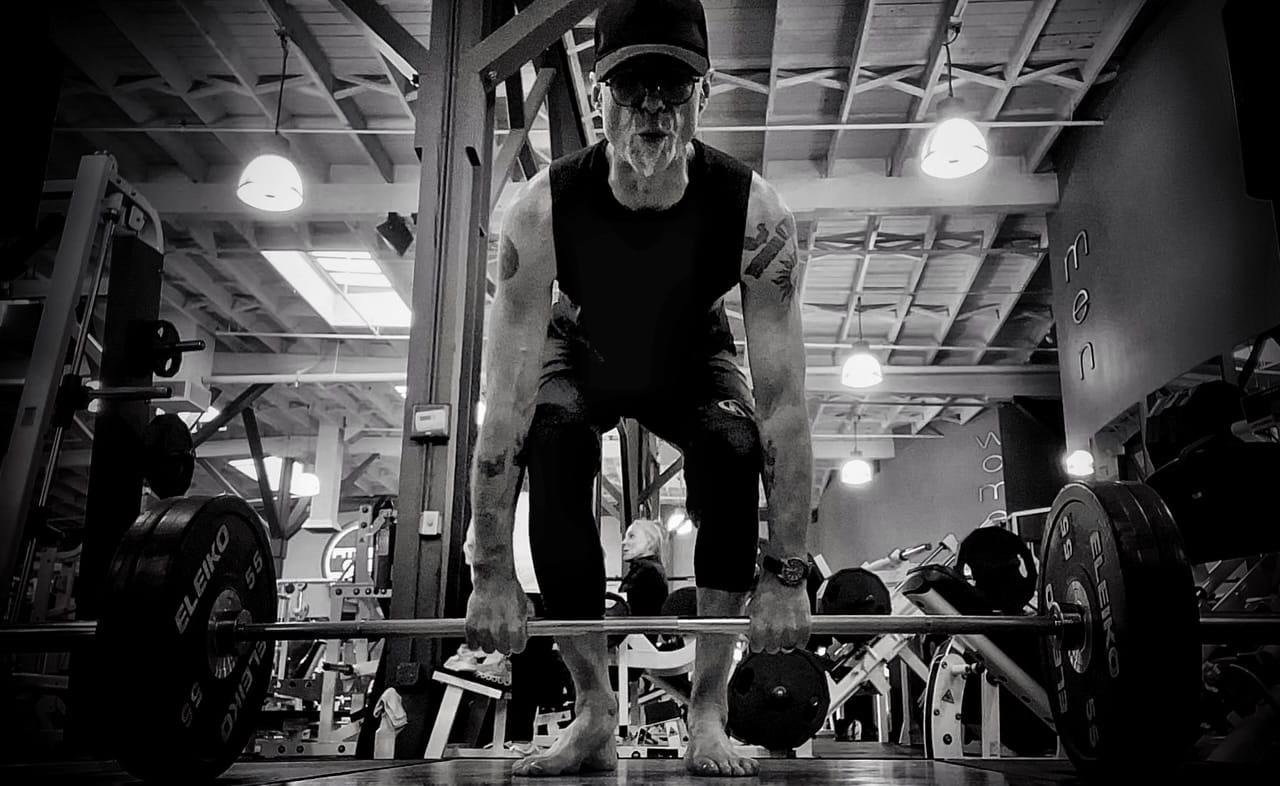
"Back then, I was very motivated by fear. And that's a powerful motivator. I literally felt like I was deteriorating, and I was desperate to find a way to stop it. But now, it's about feeling good. It's just a slam dunk. It's kind of like asking "how do you stick with eating?" If I don't eat...I get hungry. On a similar note, if I don't work out, I get grouchy. It's just part of my makeup now."
JB: We’ve talked about nutrition, and we’ve talked about core and cardio; now let's talk about lifting iron. I lot of people I know that are into heavy lifting talk about the feeling they get when they're doing it. It's similar to the feeling I get when I cycle up a huge hill and see sweeping panoramic vistas. It's a feeling of euphoria.
PC: Well, I really enjoy the feeling of a good lifting session. That feeling lasts for days. So, yeah...it was kind of a euphoria, or a high, or whatever you want to call it.
And there's a second part of the equation, too. As Ray Davies once sang, “I’m not the world's most masculine guy!” but working in the gym and lifting iron allowed me a sense of my own masculinity that I never had before. Bottom line, I love the feeling of pushing things to the edge of my capabilities and then proving to myself I can work beyond those limitations.
JB: Let's segue into another question. You're now at the point where you've lost forty or fifty pounds or so. And, at some point in your fitness journey, you accepted that having a physique like Schwarzenegger wasn't in the cards, so why not be satisfied with the progress you'd already made and quit?
PC: Well, that's a super good question. And the answer is pretty simple: I just felt better than I ever had in my life. I felt lighter. I could move better. I wasn't in any pain. Life had become much easier for me to physically negotiate on a day-to-day basis.
At this point in my life, I feel crappy if I don't get to the gym and get my deadlifts or bench presses in. If anyone asks me about my regimen, I tell them that the two hours I put in the gym three times a week is a really small investment for feeling so goddamn great for the next 48 hours.
JB: Let's talk about one of the most gratifying stories of our friendship and training history. I'm never going to make the cover of the "Fortune 500" in my chosen profession. So, a lot of the rewards I get is the from seeing the progress my clients make.
One story I remember in particular is when your wife Pam was staging a play in San Francisco. It was in one of those classic SF theaters where there was a whole bunch of stairs leading to the subterranean performance space. The set arrived, with all the lumber, furniture, and props, and there was no one there to carry it down all the flights of stairs. Except for you. Phil Version 1.0 would've never of dreamed of taking on that task. But this was Phil Version 2.0.
PC: Yes. My wife Pam was producing a play she'd written at a downtown SF theater. The theater had three flights of stairs down from the main street. The crew members hadn't arrived yet, so it was just me. I just hauled all that stuff – lumber mostly – from the truck on the street, down three flights of stairs, to the stage area. Fourteen trips. I remember it was really heavy and unwieldy, but I wasn't focused on that at the time, because I was under some time constraints. I just picked up the stuff and lugged it down the stairs. I don't even remember being particularly out of breath.
After it was all done, it kind of dawned on me…”Holy crap...what did I just do?"
JB: That's a notable contrast to how you used to avoid movement.
PC: Totally. My wife used to get pissed at me for not taking out the garbage and think it was just because I was a lazy bastard. Some of that is true of course, (laughs) but the reality was that traversing those few flights of stairs was a legitimately difficult and humbling experience for me.
I think that once I dispensed with the idea of looking like Schwarzenegger, things kind of opened up. I was feeling great, and I took advantage of every opportunity that presented itself for movement. For example, around that time, I was seeing a therapist who was in the old Flood Building in downtown SF. He was on the thirteenth or fourteenth floor or something like that. And I took ths stairs. Every week. It became a challenge for me. Sure, I'd get to the session a little sweaty and winded, but I arrived feeling great!
JB: One of the unique goals you've aspired to is bench pressing more than Richard Nixon. I've heard a lot of aspirational goals in my career, but that's a first.
PC: Well, long ago I read that somewhere that Nixon was grousing that his enemies were messing with someone that "benched press 220 in college." I can't recall where I read it, and I’ve searched for the source of that story for years, to no avail. But I know for sure that I've read it. I actually heard of a lecture in New England awhile back where the guy was citing this as a particular fact in his talk about U.S. presidential trivia. Although I haven't been able to get a copy of the actual lecture, I have been able to get his contact info. I even tried called him to try and substantiate that, but I never heard back. (laughing) But yeah, it's a definite goal of mine to say I can bench press more at my age than Richard Nixon could in college. I just hit 205 the other day, which was a PR. So, I'm on my way...
JB: (laughing) What's next after that? A visit to the Nixon Presidential Library to get officially certified?
PC: Haha. That's a great idea. They would probably know.
JB: Well, Phil, as always it's been a real pleasure talking with you. Any closing thoughts or remarks you'd like to make?
PC: Yeah. You know, I'm healthier and happier than I've ever been. And a giant part of that has been your doing. I owe you a massive debt of gratitude. So, thank you.
JB: The pleasure has been all mine, Phil.
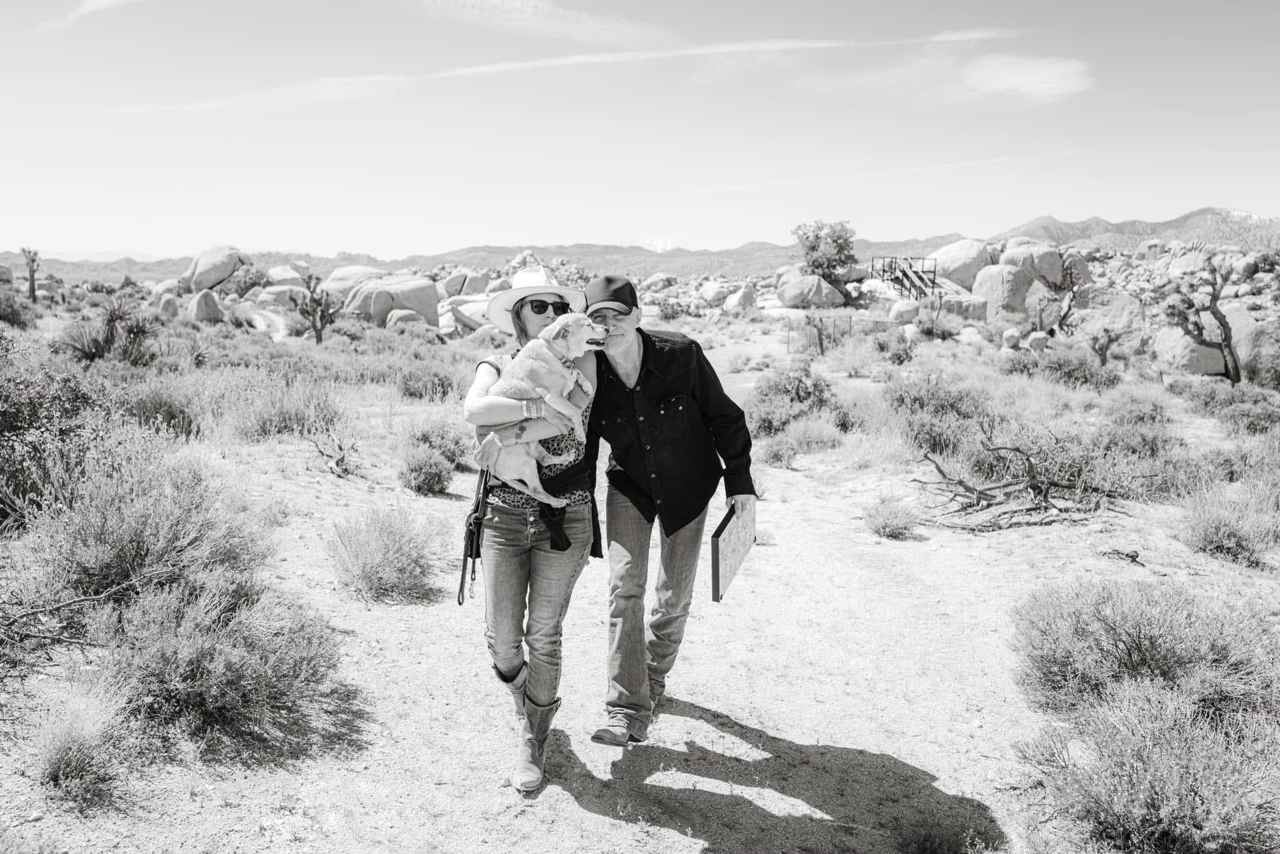
"You know, I see people my age or even younger, and they look and move like they're twenty years older than I am. And that was going to be my destiny. That was what I was on track for. Especially at my age, the difference between the people who are engaged with their bodies and the people that aren't is immense. I'm very grateful to be among the former and not the latter."
Member discussion